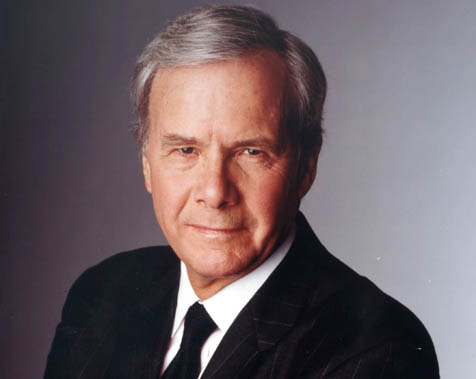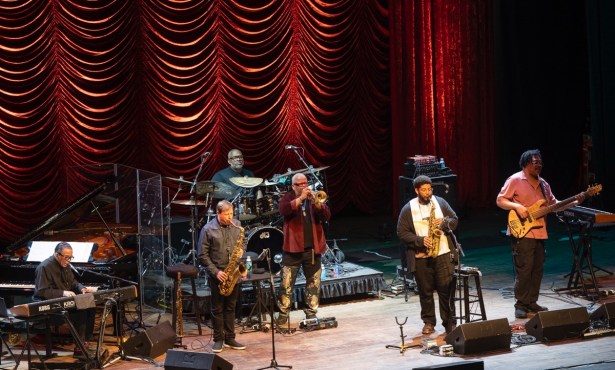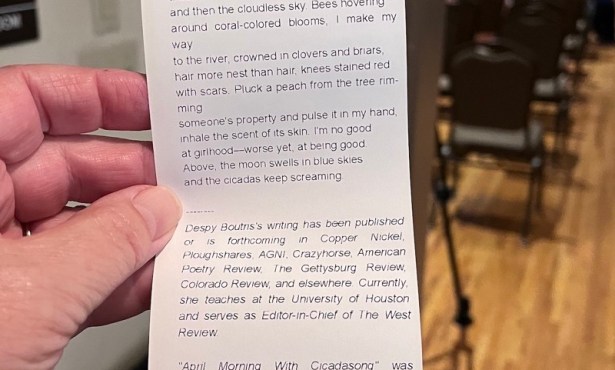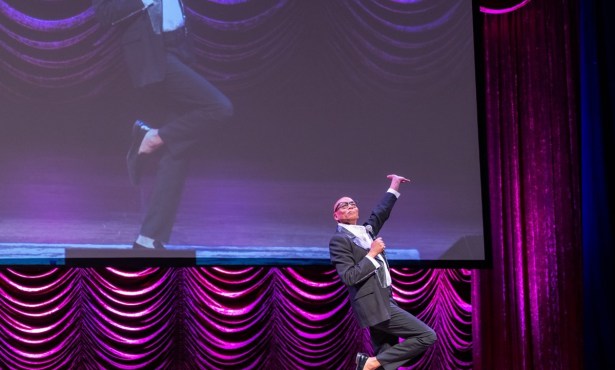Tom Brokaw on Pre-War Press and the Information Era
Of Booms and Bangs

In Boom: Voices of the Sixties, Personal Reflections on the ’60s and Today, former NBC Nightly News anchor Tom Brokaw offers a follow-up to The Greatest Generation, his best-selling book about the á¾½50s. Boom, like The Greatest Generation, is not really a history, and certainly isn’t a polemic; it’s an easygoing series of reflections about people Brokaw thinks exemplified the era. Last week, in advance of Brokaw’s November 11 appearance in Santa Barbara, The Independent emailed him some questions about his book, the current state of the press, and the pre-war coverage of Iraq and WMD.
In Boom you write that the “jury is out” on the political and cultural legacy of the ’60s. Misplaced idealism and radicalism aside, weren’t the political and cultural shifts-more equality for women, blacks, and minorities; a more skeptical attitude in the public and the press brought to bear on federal government; the end of Vietnam-good, and in fact necessary? Yes, all that is true, but even within those developments there are contradictions. The rise of opportunities for many African-Americans was accompanied by a simultaneous corrosion within the black family structure in the lower income groups. Women have many more opportunities today, but the “mommy track” question still is not fully resolved. The war in Iraq demonstrated we still have not settled as a nation how and when to go to war.
In Al Gore’s latest book, The Assault on Reason, he argues that one of the biggest problems in American democracy right now is TV news-network and cable. His is a perennial complaint-that TV dumbs the news down, values style over substance, is fluffy far too often, and encourages political polarization with “commentary” shows featuring screaming heads. Legitimate? Not legitimate? Partly legitimate? At best, partly legitimate. There are so many more outlets now-over the air, on cable, on the Internet-that everyone can access, and many of them provide more in-depth coverage of serious issues than just the three networks could have provided twenty years ago-when there was no C-SPAN, no hour-long Sunday morning interview shows, no multiple debates during a presidential campaign, no easy access to national and international developments via the Internet.
Declining circulation, fewer viewers, shrinking advertising, an exodus of young people from serious news coverage, and devalued stocks are causing alarm in the news industry. Is the press in trouble, and if so, how serious is it? We’re in the midst of what I call The Second Big Bang-when a new universe of disseminating and receiving information is being formed. Viewers and readers still are trying to determine which of these new planets will merge and support life, which will drift too close to the sun and burn up, and most of all, which are reliable. At the dissemination end, there will necessarily be more connectivity and a broader platform. Nightly News is now not just over the air but also on the NBC News Web site. It’s also available to download on an iPod. Viewers and readers have many more choices, and journalism enterprises have to work harder and more imaginatively to reach them.
In an interview with the Columbia Journalism Review in 2004, discussing the pre-war coverage of Iraq and WMD, you said, “Well, honestly, if you go back and look at it, it was pretty damn good. We reported as best as we knew about what was going on.” Do you still stand by that statement? Yes. I was in Iraq twice before the war began, and reported on both occasions that while there was great unhappiness with Saddam, there was also resistance to the U.S. telling the Iraqi people how to live their lives. Even critics of the war thought there were WMD because all of the available evidence pointed to that. In the first weeks of the war our military analysts on NBC enraged the Administration because they kept saying, “We don’t have enough troops.”
How do you respond to critics of the pre-war coverage who say that, in fact, most of the reporting was too reliant on sources sympathetic to the administration, that it was credulous and timid, and that, in Michael Massing’s words (from one of his famous New York Review of Books articles), “Despite abundant evidence of the administration’s brazen misuse of intelligence [on WMDs], the press repeatedly let officials get away with it.” I think-with all due respect to Mr. Massing’s claim-the word “abundant” is a big reach. There were questions, but even the UN inspectors who had been greatly constrained while in Iraq were at best uncertain about what Saddam had and didn’t have.
In the same interview with CJR, you said, “The fact is that Congress voted overwhelmingly to approve the war, and we had to reflect that.” Why? What I was saying about the Congressional vote is that we had an obligation to report what in fact happened as a matter of record.
What is your sense of the general quality of the American press establishment today? Does it measure up to the Watergate and Pentagon Papers days? Is it better? Worse? It’s much better than it gets credit for being. The in-depth coverage by the mainstream newspapers, the documentaries of [PBS’s] Frontline, the investigative work of Lisa Myers [at NBC], and the six documentaries I’ve reported in the last four years alone, have covered a wide range of issues, from the war on terror to what went wrong in Katrina, to global warming, to Iran, to mistakes of the administration. But the universe is so crowded now that the distinguished work is sometimes lost in the mass of material that people have to sort through every day.
In conducting this email interview, writer Sam Kornell referenced two documents. The first is an interview Brokaw did with the Columbia Journalism Review in January 2004 that can be accessed at cjrarchives.org. The second is one in a series of essays journalist Michael Massing published in the New York Review of Books critiquing the press’s coverage of the war and the Bush administration; these essays are widely credited with prompting the New York Times‘s famous May 26, 2004, front-page article conceding the flaws in its pre-war coverage. They can be found in the archives at nybooks.com by searching for Michael Massing.
4•1•1
Tom Brokaw will speak at UCSB’s Campbell Hall on Sunday, November 11 at 10am. For more information, call 893-3535 or visit artsandlectures.ucsb.edu. Brokaw will also deliver the keynote speech at the Pierre Claeyssens Veterans Museum and Library’s 2007 Military Ball, held at the Bacara Resort on Saturday, November 10, from 6-7pm. For more information, call 966-1660



